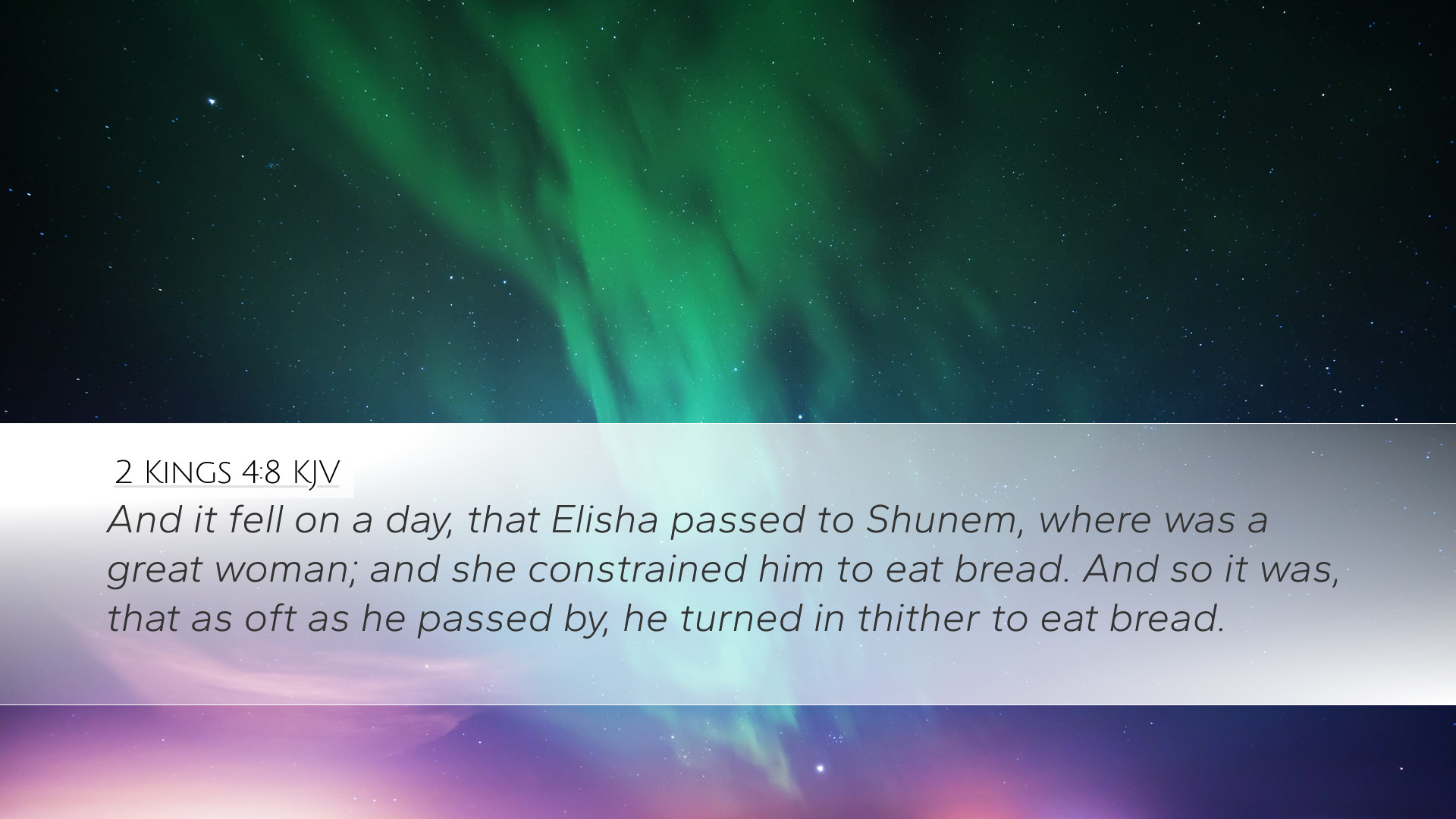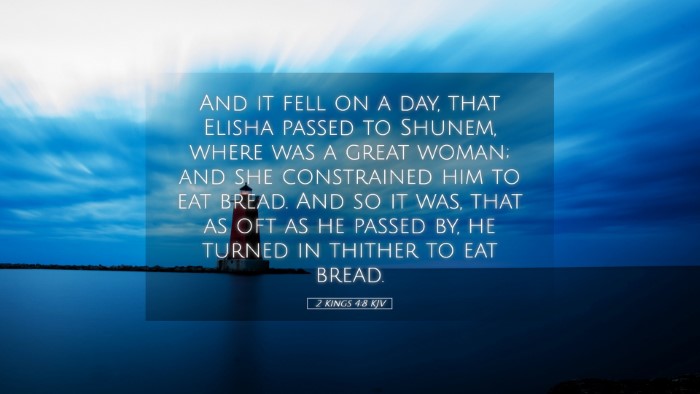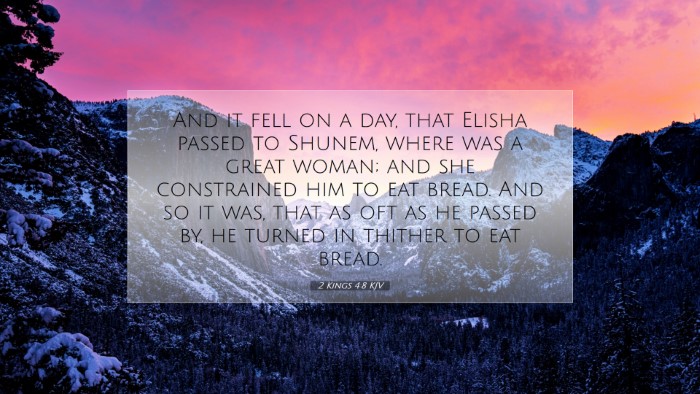Commentary on 2 Kings 4:8
Verse Overview: 2 Kings 4:8 describes the encounter of Elisha with a notable woman from Shunem who offers him hospitality. This verse sets the stage for the unfolding narrative of God's provision through His prophet.
Contextual Background
The historical backdrop of 2 Kings involves the ministry of the prophet Elisha, who succeeded Elijah. This period is characterized by the decline of Israel and its transition from a united monarchy to a division between Israel and Judah. The prophetic ministry plays a critical role in guiding, warning, and encouraging the people during these tumultuous times.
Verse Text
"And it fell on a day, that Elisha passed to Shunem, where was a great woman; and she constrained him to eat bread. And so it was, that as oft as he passed by, he turned in thither to eat bread." (2 Kings 4:8, KJV)
Commentary Insights
-
Hospitality of the Shunammite Woman:
Matthew Henry emphasizes the significance of hospitality in biblical culture. The Shunammite woman recognized Elisha as a man of God and exercised her generosity by providing him with sustenance. This act of kindness reflects her discernment and respect towards the divine calling of Elisha.
-
Divine Provisions:
Albert Barnes notes that the term "great woman" indicates not just her social standing but also her virtue and influence. She takes the initiative to invite Elisha to her home, which sets a precedent for how God can work through willing and hospitable hearts to fulfill His purposes. This gesture of her hospitality is a prelude to the blessings that follow in the story.
-
Significance of the Location:
Adam Clarke highlights the importance of Shunem, a city of Issachar. It was located near Mount Gilboa and had strategic importance due to its proximity to the main travel routes. This detail serves to illustrate the faithful presence of Elisha as he moves through Israel, ministering to the people.
-
Persistent Ministry:
Matthew Henry points out Elisha's willingness to eat bread shows his acceptance of the hospitality, which strengthens the bond between the prophet and the woman. Each time he passes by, he turns in to eat bread, which demonstrates the importance of communal meals in establishing and deepening relationships among God's people.
-
Community Impact:
Barnes remarks that in desolate times, the hospitality extended by individuals like the Shunammite woman showcases the profound impact one person can have in a community. Her actions exemplify how acts of kindness resonate within the societal fabric, contributing to the overall wellbeing of those around her.
-
Spiritual Humility and Recognition:
Clarke observes that the woman's constraints to invite Elisha indicates humility; she did not merely extend an invitation but rather "constrained" him. This reflects her eagerness to serve and her acknowledgment of the value that Elisha brought with him. She symbolizes a faithful servant of the Lord, who recognizes the need for nourishment—both physical and spiritual.
-
Exemplifying Faith:
Henry also reflects on how her hospitality can be seen as an act of faith. By welcoming the prophet and acknowledging his role, she prepares herself to receive future blessings, suggesting that her faith will be rewarded.
-
Foreshadowing Blessings:
Albert Barnes asserts that the act of offering food and shelter to someone with a divine purpose serves as a precursor to the miracles and blessings that will unfold later in the narrative. It implies a covenant relationship that God establishes through acts of kindness and service.
Theological Implications
This verse brings forth several theological implications for pastors, students, and scholars:
- The Role of Prophets: The ministry of Elisha illustrates the centrality of prophetic figures in guiding and shaping the spiritual life of a community.
- Hospitality as a Spiritual Discipline: The act of hospitality is not merely a social nicety but a profound expression of faith and obedience to God's call.
- God's Provision through Community: This verse illustrates how God uses individuals in community to fulfill His divine purposes, showing that the faithful actions of one can transform many lives.
- Faith and Works: The Shunammite woman's actions reflect the biblical principle that faith is often expressed through works, confirming the teachings of James about faith and deeds.
Conclusion
2 Kings 4:8 serves as a compelling narrative about the intersection of hospitality, faith, and divine provision. As Elisha's ministry unfolds, the pivotal role the Shunammite woman plays emphasizes the importance of responding to God's leading in tangible ways. Understanding this text through the insights of renowned commentators enriches the comprehension of the dynamics at play within the narrative and illustrates timeless truths that resonate with contemporary audiences.


